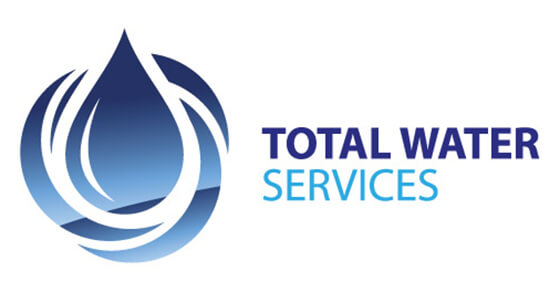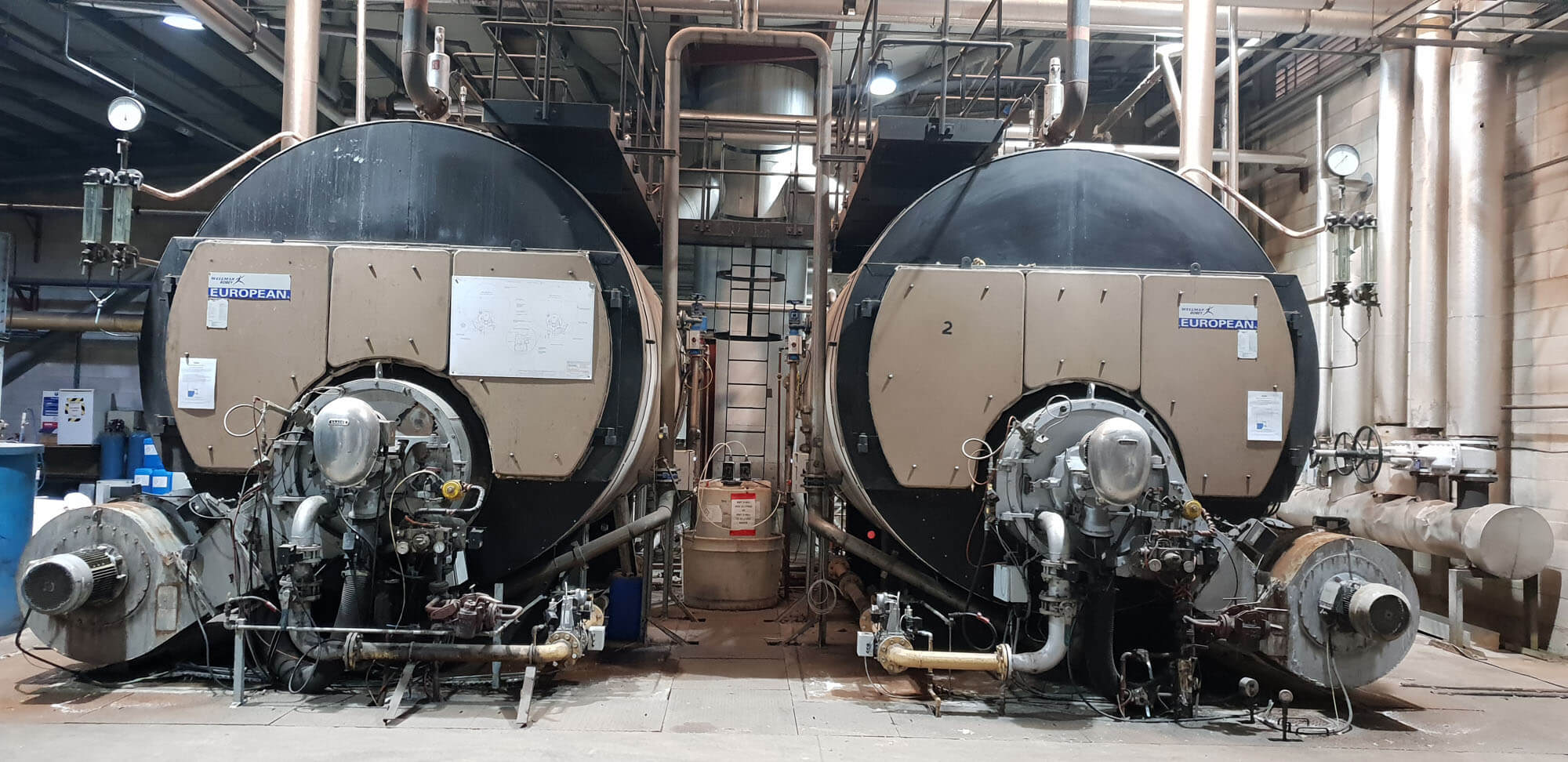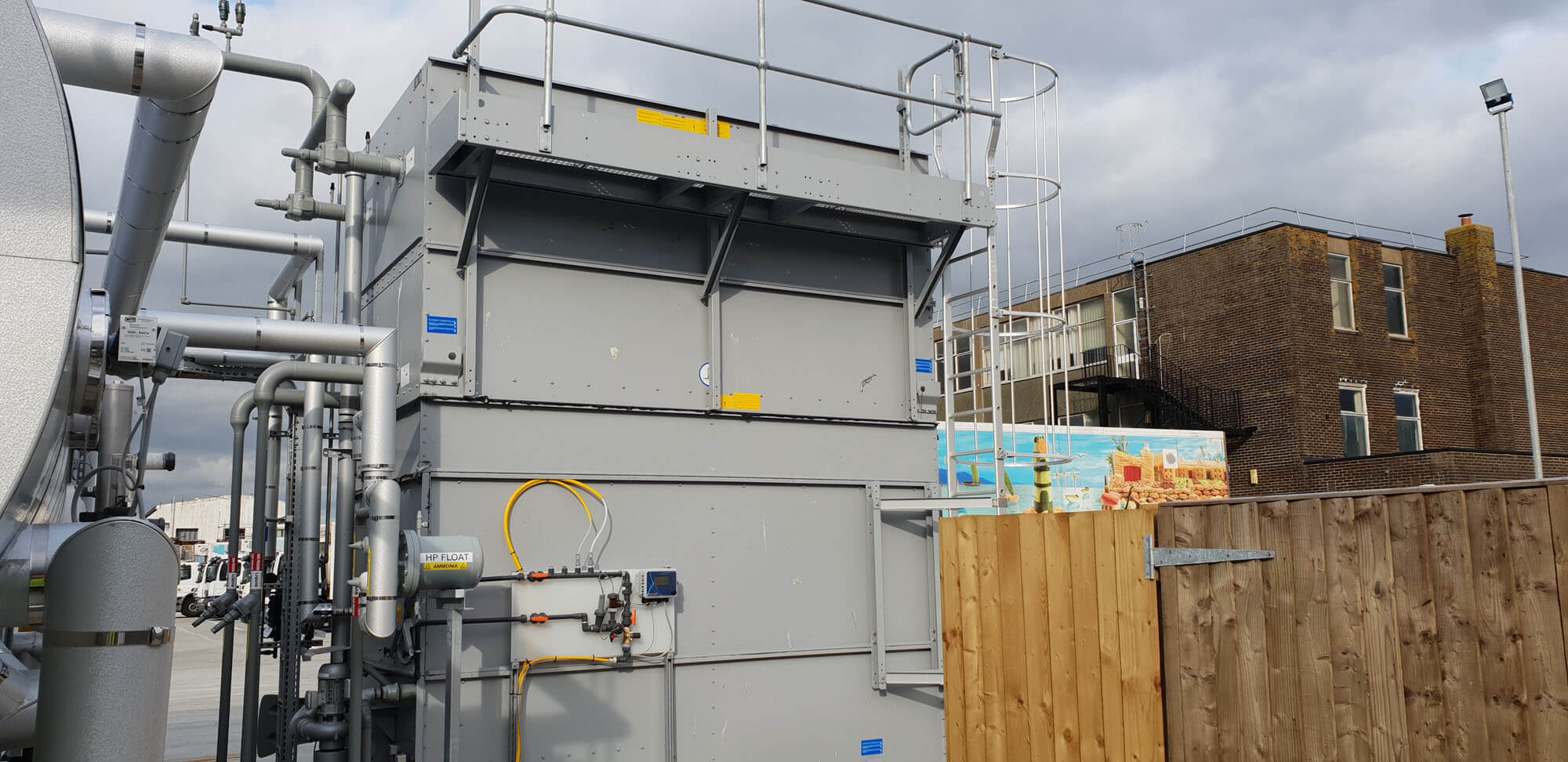WATER TREATMENT
Boiler Water Treatment
Mains water supplies contain contaminants (dissolved minerals and suspended solids) that can cause problems when allowed to build up in a steam raising plant. These contaminants build up within the steam boiler as when the water is converted into steam by the application of heat the contaminants are left behind in the boiler and can quickly concentrate up to levels that become detrimental to the boiler fabric and can also cause the production of poor quality steam which can then affect equipment down stream of the boiler.
The main issues with contamination are:
• Corrosion
• Scale deposition/deposit formation
• Carry Over
By applying the correct treatment approach and monitoring the systems on a regular basis the detrimental effect of these contaminants can be minimized or eradicated so prolonging system life and assuring the production of good quality steam in a safe and efficient manner. This would normally be achieved by the installation of a base exchange water softener to remove “hardness” from the water prior to it entering the boiler so preventing scale formation. The addition of oxygen scavengers (type dependant on hot well temperature and steam usage) and caustic will minimize corrosion in the system by raising the alkalinity and lowering the amount of oxygen in the water (in the absence of oxygen the corrosion rates of steel are massively reduced) adding specific polymers to the feed water reduce scaling even further by “mopping up” any calcium that could have slipped through the water softener. Regular testing and control of the boiler water TDS (total dissolved solids) to maintain it between 2500-3500 will minimize waterside issues and also keep the system efficient as excessive blow downs are costly to a business due to heat and steam losses and subsequent extra water and chemical make up. All of Total Water Services treatment packages conform to the requirements laid down in BS2486 – Water Treatment of land boilers. Further guidance is given in BG04 on the best way to run your boiler plant.
Cooling Water Treatment
Water still remains the best cooling medium available to industry in that it is readily available, is cheap and absorbs and rejects heat efficiently. It does however require regular checks to be carried out to ensure that problems do not manifest themselves.
Issues in cooling treatment are usually threefold:
Corrosion – Under the right conditions water can become quite corrosive which can cause damage to system integrity and so shorten its lifespan causing costs to the business. The corrosion of steel pipework or steel components also releases iron into the water which can be a nutrient for bacteria. Total Water Services can provide a whole range of corrosion inhibitors and monitoring equipment.
Fouling – A cooling system can become fouled in a number of ways. Scaling can occur when the mineral components of water supplies become saturated within the system and then precipitate out as scale. This scale can insulate or even block heat exchange surfaces leading to reduced efficiency and greatly increased running costs and down times. By adding correctly formulated inhibitors and controlling the system conductivity Total Water Services can reduce and even eradicate fouling within the system. Regular cleaning of cooling towers and evaporative condensers is also undertaken to remove debris that enters the cooling system via the fans used to cool the water down. The frequency of the cleans is determined by a fouling assessment so the cleaner the system, the less time it needs to be taken out of action for maintenance.
Microbiological Activity – If left unchecked bacteria can cause many issues in cooling systems. Legionella is the primary cause for concern but bacteria can cause fouling by producing biofilms. These biofilms prevent inhibitors from being effective and so can lead to accelerated corrosion and also cause blockages in heat exchangers. Total Water Services can supply many different biocides to prevent and control bacteria including Legionella to keep microbiological activity under control and keep the systems compliant with all current legislation.
Closed Circuit Treatments
A closed circuit water system can be used for either heating or cooling purposes.
The system contains water within it and predominantly works by recirculating this water around the system whilst rarely including any fresh water make-up. This is seen as beneficial in many industries due to the reduction in the potential inclusion of contaminants/impurities.
Typical examples of these systems include air conditioning equipment and central heating.
Problems and Causes
The purpose of closed circuit water treatment is to help condition the water to prevent issues such as scale, corrosion, microbiological activity etc which could all lead to reducing the efficiency of the system.
Treatment/Service
An ongoing water treatment program not only is an essential part of running an efficient and cost effective closed circuit system, but also assists in meeting the government legislations covering water quality under the BS7593 “Code of practice for treatment of water in hot water central heating systems”.
Total Water Services provide tailored solutions to fulfill our individual clients requirements and compliance with all Government Legislation.
Overview
We pride ourselves in giving a friendly, reliable and cost effective service.



